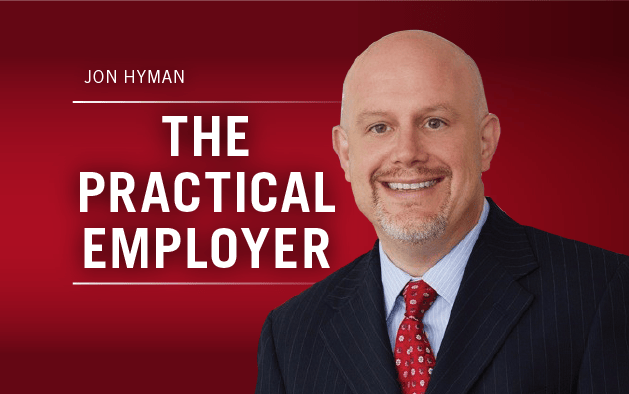When is the last time you reviewed, or, even better, re-wrote your employee handbook?
Last year? Five years ago? Ten years ago? What’s an employee handbook?
Now is as good a time as any to dust off yours, and give it a good review and polishing.
The National Labor Relations Board recently published guidance on the standards it will follow in determining whether a facially neutral employment policy violates the rights of employees to engage in concerted activity protected by section 7 of the National Labor Relations Act.
The board, over scathing dissents by its more reasonable members and scorching critiques from business groups, had applied its longstanding Lutheran Heritage rule to find that a variety of employment policies violate employees’ rights to engage in protected concerted activity under section 7 of the National Labor Relations Act. Lutheran Heritage asked if an employee would “reasonably construe” a work rule to infringe on their right engage in protected concerted activity. The benign policies it found unlawful ranged from confidentiality, to insubordination, to the use of company logos, to photography bans, and to conflict-of-interest rules. Over the past few years, the board’s Lutheran Heritage test has led to some pretty crazed results.
Lutheran Heritage, however, now resides in the NLRB’s dust bin. In its place is Boeing Co., which scrapped the board’s “reasonably construe” test.
Category 1: Rules Generally Lawful to Maintain
These rules are presumed lawful because, when reasonably interpreted, they do not prohibit or interfere with the exercise of rights guaranteed by the Act, or because the potential adverse impact on protected rights is outweighed by the business justifications associated with the rule. Such rules include:
- Civility rules
- No-photography rules and no-recording rules
- Rules against insubordination, non-cooperation, or on-the-job conduct that adversely affects operations
- Disruptive behavior rules
- Rules protecting confidential, proprietary, and customer information or documents
- Rules against defamation or misrepresentation
- Rules against using employer logos or intellectual property
- Rules requiring authorization to speak for the company
- Rules banning disloyalty, nepotism, or self-enrichment
Category 2: Rules of Individualized Scrutiny
These rules are not obviously lawful or unlawful, and must be evaluated on a case-by-case basis to determine whether the rule would interfere with rights guaranteed by the NLRA, and if so, whether any adverse impact on those rights is outweighed by legitimate justifications. Such rules include:
- Broad conflict-of-interest rules that do not specifically target fraud and self-enrichment and do not restrict membership in, or voting for, a union.
- Confidentiality rules broadly encompassing “employer business” or “employee information” (as opposed to confidentiality rules regarding customer or proprietary information, or confidentiality rules more specifically directed at employee wages, terms of employment, or working conditions.
- Rules regarding disparagement or criticism of the employer (as opposed to civility rules regarding disparagement of employees).
- Rules regulating use of the employer’s name (as opposed to rules regulating use of the employer’s logo/trademarks.
- Rules generally restricting speaking to the media or third parties (as opposed to rules restricting speaking to the media on the employer’s behalf.
- Rules banning off-duty conduct that might harm the employer (as opposed to rules banning insubordinate or disruptive conduct at work, or rules specifically banning participation in outside organizations).
Rules against making false or inaccurate statements (as opposed to rules against making defamatory statements).
Category 3: Rules Unlawful to Maintain
Rules in this category are generally unlawful because they would prohibit or limit NLRA-protected conduct, and the adverse impact on the rights guaranteed by the NLRA outweighs any justifications associated with the rule. Such rules include:
- Confidentiality rules specifically regarding wages, benefits, or working conditions (such as, “Employees are prohibited from discussing or disclosing wages, salaries, commissions, bonuses, or any other remuneration.”).
- Rules against joining outside organizations or voting on matters concerning the employer.
These rules are welcome news for employers, as they provide much needed sanity on the legality of facially neutral employment policies, many of which employers scrapped under the NLRB’s questionable Obama-era rulings.

